第14章 A CAMP IN THE DARK(5)
The husband had begun life as a muleteer, and when I came to charge Modestine showed himself full of the prudence of his art. 'You will have to change this package,' said he; 'it ought to be in two parts, and then you might have double the weight.'
I explained that I wanted no more weight; and for no donkey hitherto created would I cut my sleeping-bag in two.
'It fatigues her, however,' said the innkeeper; 'it fatigues her greatly on the march. Look.'
Alas, there were her two forelegs no better than raw beef on the inside, and blood was running from under her tail. They told me when I started, and I was ready to believe it, that before a few days I should come to love Modestine like a dog. Three days had passed, we had shared some misadventures, and my heart was still as cold as a potato towards my beast of burden. She was pretty enough to look at; but then she had given proof of dead stupidity, redeemed indeed by patience, but aggravated by flashes of sorry and ill-judged light-heartedness. And I own this new discovery seemed another point against her. What the devil was the good of a she-ass if she could not carry a sleeping-bag and a few necessaries? I saw the end of the fable rapidly approaching, when I should have to carry Modestine. AEsop was the man to know the world! I assure you I set out with heavy thoughts upon my short day's march.
It was not only heavy thoughts about Modestine that weighted me upon the way; it was a leaden business altogether. For first, the wind blew so rudely that I had to hold on the pack with one hand from Cheylard to Luc; and second, my road lay through one of the most beggarly countries in the world. It was like the worst of the Scottish Highlands, only worse; cold, naked, and ignoble, scant of wood, scant of heather, scant of life. A road and some fences broke the unvarying waste, and the line of the road was marked by upright pillars, to serve in time of snow.
Why any one should desire to visit either Luc or Cheylard is more than my much-inventing spirit can suppose. For my part, I travel not to go anywhere, but to go. I travel for travel's sake. The great affair is to move; to feel the needs and hitches of our life more nearly; to come down off this feather-bed of civilisation, and find the globe granite underfoot and strewn with cutting flints.
Alas, as we get up in life, and are more preoccupied with our affairs, even a holiday is a thing that must be worked for. To hold a pack upon a pack-saddle against a gale out of the freezing north is no high industry, but it is one that serves to occupy and compose the mind. And when the present is so exacting, who can annoy himself about the future?
I came out at length above the Allier. A more unsightly prospect at this season of the year it would be hard to fancy. Shelving hills rose round it on all sides, here dabbled with wood and fields, there rising to peaks alternately naked and hairy with pines. The colour throughout was black or ashen, and came to a point in the ruins of the castle of Luc, which pricked up impudently from below my feet, carrying on a pinnacle a tall white statue of Our Lady, which, I heard with interest, weighed fifty quintals, and was to be dedicated on the 6th of October. Through this sorry landscape trickled the Allier and a tributary of nearly equal size, which came down to join it through a broad nude valley in Vivarais. The weather had somewhat lightened, and the clouds massed in squadron; but the fierce wind still hunted them through heaven, and cast great ungainly splashes of shadow and sunlight over the scene.
Luc itself was a straggling double file of houses wedged between hill and river. It had no beauty, nor was there any notable feature, save the old castle overhead with its fifty quintals of brand-new Madonna. But the inn was clean and large. The kitchen, with its two box-beds hung with clean check curtains, with its wide stone chimney, its chimney-shelf four yards long and garnished with lanterns and religious statuettes, its array of chests and pair of ticking clocks, was the very model of what a kitchen ought to be; a melodrama kitchen, suitable for bandits or noblemen in disguise.
Nor was the scene disgraced by the landlady, a handsome, silent, dark old woman, clothed and hooded in black like a nun. Even the public bedroom had a character of its own, with the long deal tables and benches, where fifty might have dined, set out as for a harvest-home, and the three box-beds along the wall. In one of these, lying on straw and covered with a pair of table-napkins, did I do penance all night long in goose-flesh and chattering teeth, and sigh, from time to time as I awakened, for my sheepskin sack and the lee of some great wood.